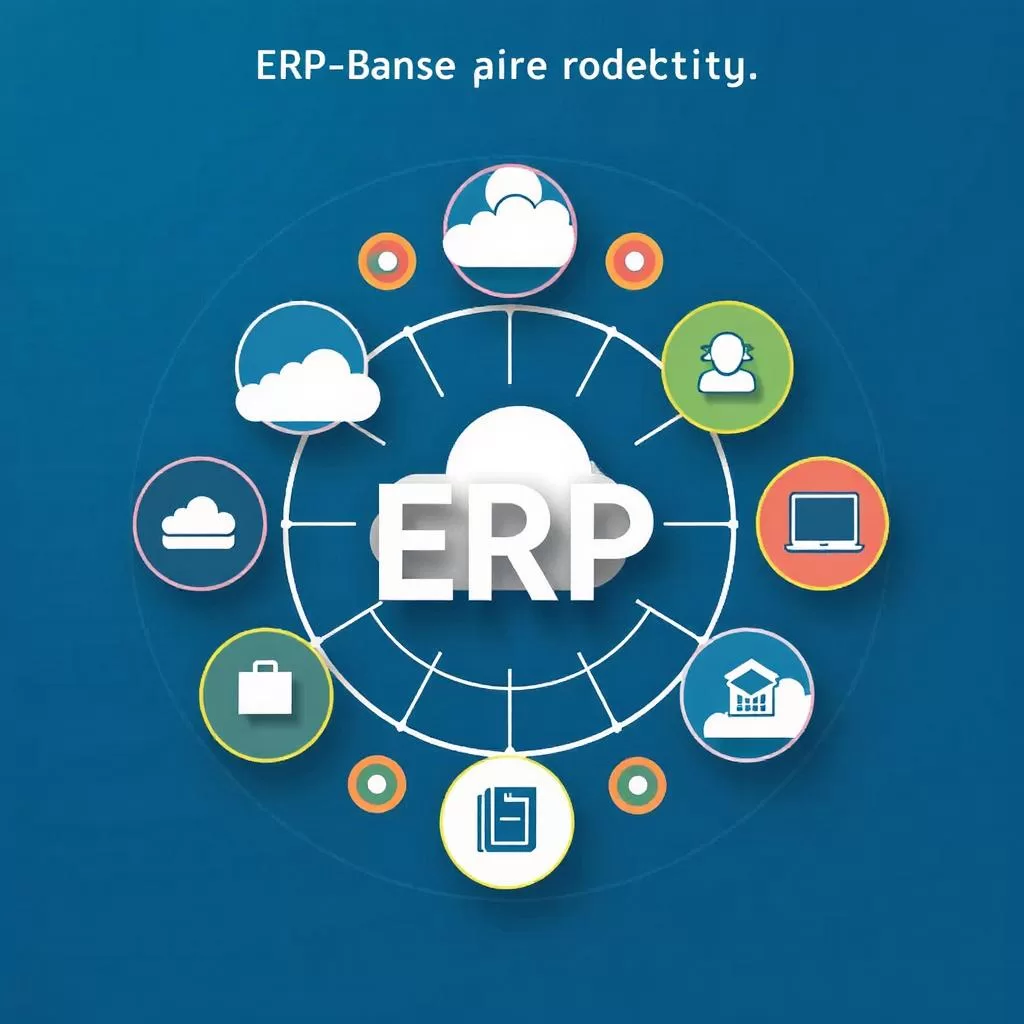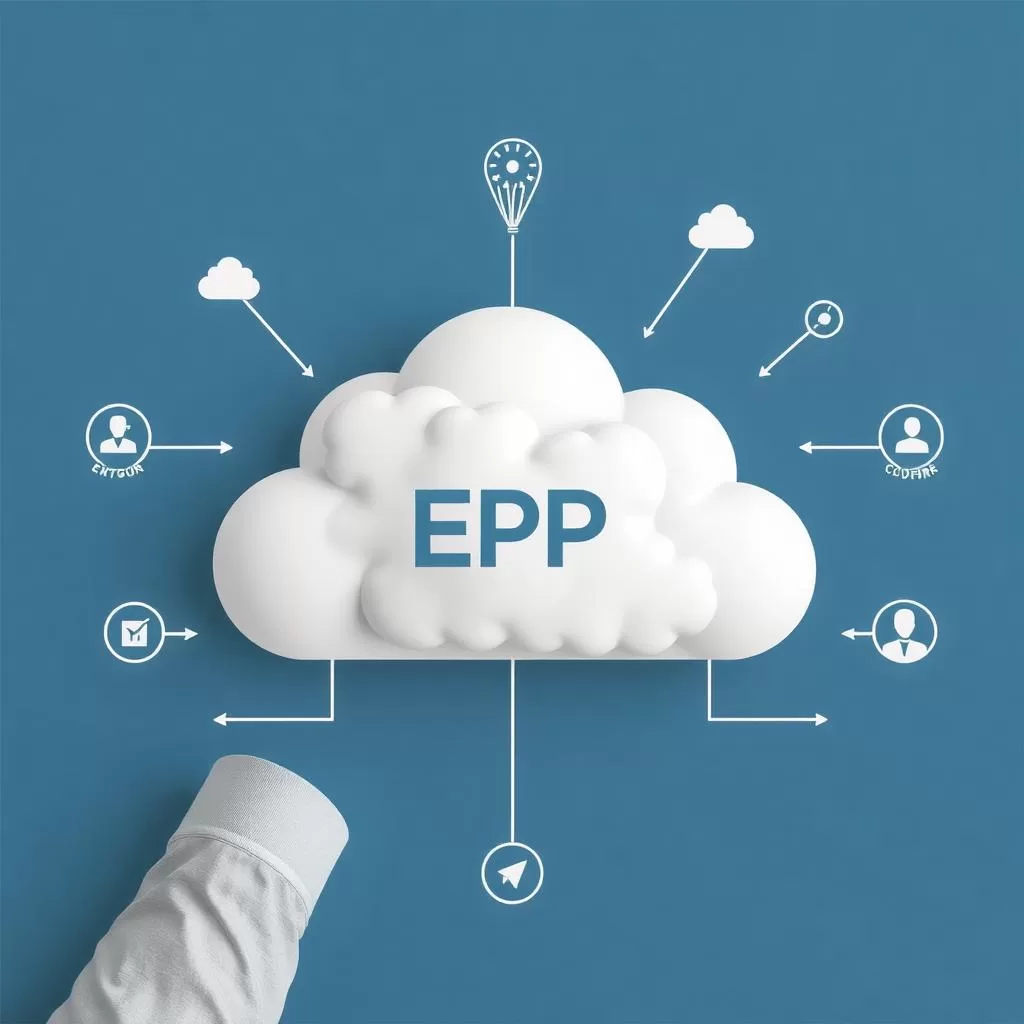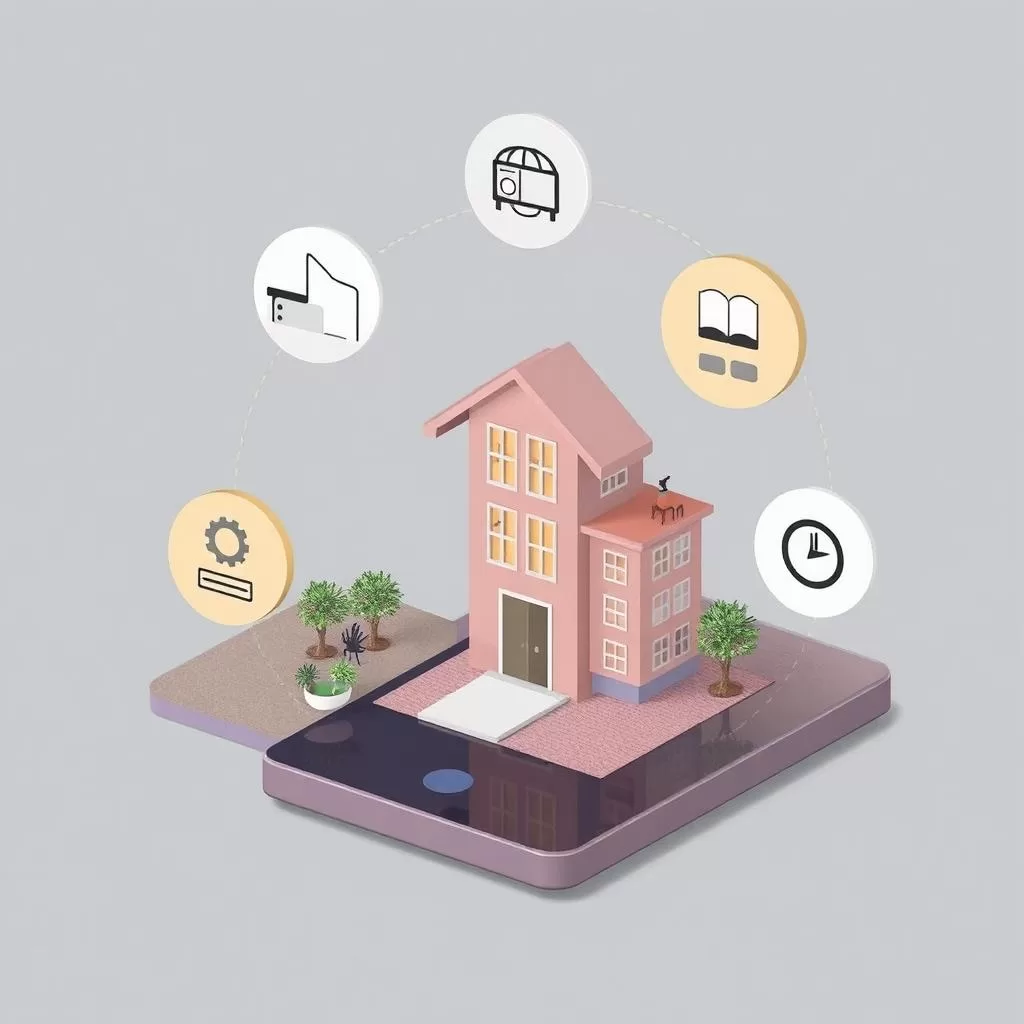Cloud-Based ERP: Why Your Business Needs It
Introduction: The Future of Business is in the Cloud
The business world is changing rapidly, and companies that fail to adapt to new technologies risk falling behind. Traditional ERP systems often come with high costs, maintenance challenges, and limited accessibility. As businesses grow and their needs become more complex, these traditional systems can become cumbersome, slow, and difficult to scale. This is where cloud-based ERP solutions come into play.
Unlike traditional systems, cloud ERP offers greater flexibility, scalability, and accessibility. With cloud-based systems, businesses can access real-time data from anywhere, anytime, which allows for better decision-making and improved collaboration across teams. Moreover, cloud ERP systems typically offer lower upfront costs, reduced IT infrastructure requirements, and regular updates that ensure the system remains current without additional expenses.
Why Switch to the cloud
In short, businesses that switch to cloud-based ERP are positioning themselves to stay competitive and agile in an ever-evolving market. By embracing these modern solutions, companies can not only streamline their operations but also foster innovation, increase efficiency, and drive long-term growth. We therefore have a look at why your business needs Cloud-Based ERP Systems.
- Do you want to manage your business from anywhere?
- Are you tired of expensive software upgrades and IT issues?
- Do you need real-time data access and better business insights?
If yes, then Cloud-Based ERP is the solution! ☁️💡
This article will cover:
- What a Cloud ERP system is and how it works: We will explain the fundamentals of Cloud ERP, including how it operates in the cloud and the key differences from traditional on-premise systems.
- Key advantages over traditional ERP: Discover the benefits of using a cloud-based ERP system, such as lower costs, scalability, accessibility, and easier maintenance compared to traditional ERP solutions.
- Industries that benefit the most from it: Learn which industries are leveraging Cloud ERP systems to streamline their operations, enhance efficiency, and make data-driven decisions.
- How to choose the right one for your business: Explore important factors to consider when selecting the right Cloud ERP solution for your organization’s unique needs and objectives.
By the end of this article, you’ll have a better understanding of Cloud ERP and why it’s becoming a game-changer for businesses across various industries.
Let’s get started! 🚀
1️⃣ What is a Cloud-Based ERP System? 🤔
A Cloud ERP system is an Enterprise Resource Planning solution that runs on the internet instead of local servers. Unlike traditional ERP, which requires costly installations and hardware, Cloud ERP is hosted remotely, offering secure, real-time access from anywhere.
💡 Example: With a this technology, a business owner in Nairobi can monitor sales, inventory, and employee performance from their phone while traveling abroad.
🔹 Key Features of Cloud ERP
- Web-Based Access – Manage business operations from any device 📱💻
- Automatic Updates – No need for costly software upgrades 🔄
- Scalability – Easily add new users and modules as your business grows 📈
- Data Security – Cloud servers offer encrypted backup protection 🔐
2️⃣ Why Businesses are Switching to Cloud ERP ☁️
✔ Anytime, Anywhere Access 🌍
Unlike traditional ERP that ties you to an office, it gives you full business control from any location.
- Monitor inventory, sales, and customer data in real time
- Allow employees to work remotely with secure access
- Manage multiple branches or locations from one platform
💡 Example: A retail chain with stores in different cities can use this technology to track sales and stock levels centrally.
✔ Cost Savings & No IT Hassles 💰
Traditional ERP requires expensive hardware, IT staff, and maintenance. Cloud ERP eliminates these costs by:
- Reducing the need for on-site servers and infrastructure
- Providing automatic software updates at no extra cost
- Lowering IT expenses while improving system performance
💡 Example: A small business owner saves thousands by using Cloud ERP instead of hiring an IT team to maintain local servers.
✔ Better Security & Data Protection 🔐
Cybersecurity threats are increasing, and losing business data can be disastrous. Cloud ERP providers offer:
- End-to-end encryption and secure backups
- Automatic disaster recovery and protection against cyber threats
- Role-based access control to protect sensitive business data
💡 Example: If an employee’s laptop is stolen, Cloud ERP ensures no data is lost. This is because everything is stored securely online.
✔ Scalability & Business Growth 📈
As your business expands, Cloud ERP grows with you!
- Easily add new branches, employees, or products
- Integrate with third-party apps for seamless operations
- Customize features to match your unique business needs
💡 Example: A fast-growing e-commerce company uses Cloud ERP to automate order processing and customer management, ensuring smooth operations.
3️⃣ Industries That Benefit the Cloud-based ERP Systems
🛒 Retail & E-Commerce
- Real-time inventory tracking across multiple stores
- Automated order processing and customer data management
- Integrated POS system for seamless transactions
🏢 Small & Medium Enterprises (SMEs)
Cloud-based ERP solutions offer several advantages that make them particularly appealing to businesses, especially startups:
- Low Upfront Investment. Cloud-based systems typically require little to no initial investment in hardware or infrastructure, making them ideal for startups or small businesses with limited budgets. This allows businesses to focus their resources on growth without the financial burden of large capital expenditures.
- Cloud-based Accounting and HR Management. With cloud-based ERP solutions, businesses can efficiently manage their accounting and HR processes from anywhere, at any time. These solutions provide real-time access to financial data and employee information, streamlining administrative tasks and improving accuracy.
- Business Intelligence for Smarter Decision-Making. Cloud ERP systems often come with built-in business intelligence tools that offer valuable insights into business performance. By analyzing real-time data, businesses can make smarter, data-driven decisions that improve operational efficiency and foster growth.
By leveraging cloud-based ERP solutions, businesses gain flexibility and capabilities. As a result, they are better equipped to meet the demands of today’s fast-paced market.
🚚 Logistics & Supply Chain
- Automated stock monitoring and order fulfillment
- Route optimization and real-time shipment tracking
- Vendor and supplier management
🏥 Healthcare & Pharmacies
- Patient data management and billing integration: Furthermore, cloud-based ERP systems enable seamless integration of patient data and billing systems, improving accuracy and efficiency in managing patient information, medical records, and billing processes. As a result, this ensures smoother operations and better patient care.
- Inventory control for medicines and medical supplies: In addition, a Cloud ERP system helps healthcare providers keep track of medical inventories in real-time, ensuring that the necessary medicines and supplies are always available. Consequently, this helps prevent stockouts or overstocking, which reduces waste and improves resource management.
- Compliance with healthcare regulations: Moreover, Cloud ERP solutions are designed to comply with healthcare regulations such as HIPAA (Health Insurance Portability and Accountability Act) and other industry standards. This, in turn, ensures that sensitive patient information is securely stored and managed, thus protecting both patient privacy and your organization from potential legal issues.
4️⃣ How to Choose the Cloud ERP solution for Your Business ✅
With many ERP solutions available, selecting the right one requires careful consideration.
🔹 Factors to Consider when selecting Cloud ERP System
✅ Ease of Use – A user-friendly interface is essential for smooth adoption and efficient use. Look for a solution that is intuitive and requires minimal training for your team. This will help reduce operational delays and ensure that your staff can quickly adapt to the new system.
✅ Scalability – Your business needs will evolve over time, so it’s important to choose an ERP solution that can grow with you. Ensure that the system can accommodate increasing transaction volumes, new business processes, and potential expansion into new markets.
✅ Customization – Every business is unique, so the ERP solution you choose should allow for customization. Look for a solution that can be tailored to fit your specific needs, whether it’s modifying reports, adding features, or integrating with other tools.
✅ Integration Capabilities – The ERP system should be able to seamlessly integrate with your existing tools and systems, such as accounting software, CRM systems, or inventory management tools. This reduces data silos and ensures a smoother workflow across departments.
✅ Cloud vs. On-Premise – Cloud-based ERPs offer greater flexibility, cost-effectiveness, and accessibility, as they can be accessed from anywhere and often come with lower upfront costs. On-premise solutions, on the other hand, offer more control over data and customization but may require higher initial investment and more resources for maintenance.
✅ Vendor Support and Community – A good vendor will provide excellent support, ensuring the system runs smoothly post-implementation. Research the reputation of the vendor for providing ongoing customer support, as well as the availability of an active user community for troubleshooting and advice.
🔹 Making the Final Decision
Once you’ve identified the key factors that are most important for your business, make a short list of ERP providers that meet those criteria. Request demos or trials to see the system in action and assess its usability and functionality. It’s also helpful to reach out to other businesses in your industry that have used the solutions you’re considering to gain insight into their experiences.
Choosing the right ERP system is an important decision that will impact your business operations for years to come. By evaluating your needs carefully and considering the factors above, you can find the solution that best aligns with your business goals and supports your growth.
In conclusion, selecting the right ERP solution for your business is crucial for optimizing operations, boosting efficiency, and supporting long-term growth. To make the best decision, it is important to consider various factors such as ease of use, scalability, integration capabilities, and total cost of ownership. By evaluating these aspects carefully, you can ensure that the solution you choose aligns with your company’s unique needs. Furthermore, whether you opt for a cloud-based or on-premise solution, it is essential to choose a system that not only meets your current requirements but also scales with your business as it grows, providing the ongoing support you need.
For more insights on the benefits of ERP solutions, you can refer to this guide on ERP implementation and learn more about how cloud-based ERP can transform your business.
If you’re looking for a reliable cloud-based ERP solution, feel free to explore our offerings here.
Share this content:







Post Comment